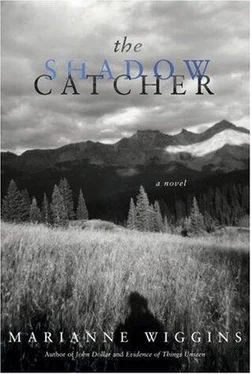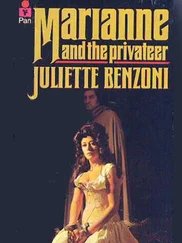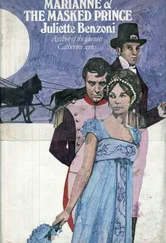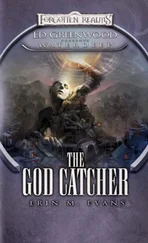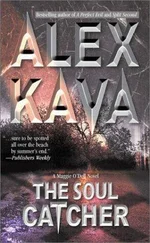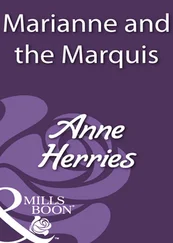I associate the phenomenon with finding a perfect word, a telling gesture, an insight into character, a crux on which a plot must turn. But that’s because most of my Realizations strike during work and are related to the shape of my profession. My work is strung on moments when I realize something — a novel is, by nature, one long Realization, which is not to say other pursuits aren’t dependent on discovery: sailing is. Cooking is. Playing music is. Sex always is. Loving is a series of discoveries: it starts, significantly, with a Realization: that moment when you know that you’re in love. If writing were as exciting as falling in love, I’d get a lot more written, but most of my Realizations come as pinpoints of light while staring at the dismal tundra of an empty page. Given my average event horizon, most of my ideas don’t have the bursts, the color spectra of world-altering discoveries like Newton’s did, or Galileo’s. Mine are minor stellar occurrences, but strung up as a necklace of small lights, my bright ideas dot the boundaries that define my life. When one occurs, then, it’s a Birth Day, like the birth of a new star far off in the universe.
Won’t necessitate the reinvention of the calendar.
But it makes another piece of heaven, all the same.
So when one of these Realizations struck one day when I was crossing Melrose after lunch with my friend David, I thanked my lucky star(s).
David likes to go to Angeli’s on Melrose, where, at lunch, only the sound of steam from the espresso maker at the bar enlivens the lacunae in the sullen dialogues between distracted screenwriters, including between me and David. He was well and truly disillusioned with writing for Hollywood that afternoon, as was I, and I was seriously planning to start picketing the studios to CUT THE CRAP and start funding films with socially responsible story lines. Stop being pipelines for product placement, a propaganda machine for consumer consumption. Stop waving guns and tits at everybody. Between the two of us, though, David made the more convincing opponent to the way Hollywood is operating these days, because he’d actually written scripts that had been made into films, whereas all I’d done was write, get the boot, and grouse. His complaints had validity, whereas mine gave off the scent of sour grapes. I had tried to work, and failed. He, at least, had worked with Hitchcock. In another century.
When we finally wandered out into the hyper-daylight, pausing, curbside, waiting for the light to change, David said, “Hey. Where are you? You’ve left your face.

“Are you writing ? Christ. Can’t it wait ’til you get home ?”
“Actually,” I confessed, “I was trying to decide if it’s better to take Highland to the 101, or quicker to take Crescent Heights.”
“George Burns story.”
I looked at him.
“George Burns is in a restaurant, and there’s a kid busing tables, just in from, let’s say Nebraska. Recognizes Burns, goes over to his table. ‘Excuse me, Mr. Burns, I’ve admired you all my life,’ he says. ‘I’ve just come to Hollywood from Omaha to be an actor, Mr. Burns, and I wonder if there’s some advice you’d care to give?’ Burns takes a puff on the cigar and — not even looking up — says, “‘Take Fountain.’”
This is no split-your-sides laughing kind of story, it’s a corny story, but because I understood the punch line, A Realization struck me: I’m an Angelena , subject to the whims of Pacific coastal heat inversions, San Andreas fault temblors, and — more to the point — subject to the traffic. Subject to the unwanted obsession of shaving minutes off the time I spend in traffic, in my car. Shortcuts are printed money— gold —and anyone who drives on Sunset, Hollywood, or Santa Monica Boulevards thinks she’s struck the motherlode when she discovers Fountain running parallel, in between those three other avenues, and she actually believes nobody else has ever thought of taking Fountain , even though every other sentient being in town has made the same discovery years ago.
Every shortcut in Los Angeles was glutted long before I got here, but I spend my journeys — and time before, and after, too — calculating odds.
The only remedy is to avoid the freeways whenever other cars are on them, never travel when it’s raining, and never under any circs make an appointment to leave the house at lunchtime or when kindergarten’s letting out or there’s a Lakers’ game or a terrorist alert or some celebrity’s on trial for murdering his wife in Santa Monica.
I’ve pretty much got it down to a system where no matter where I’m going outside my neighborhood I’m going to need an hour in my car to get there. There are a few exceptions, but even they harbor the potential for delay. I can get to the beach and the Pacific Ocean, to Malibu, in half an hour but only if a massive block of siltstone hasn’t splattered overnight in the roadway off the rock face of the canyon or if Topanga Creek hasn’t made a mess of itself, gorged, like a bulimic, and thrown up. I can get to a back lot at Universal Studios in forty minutes, but only if there are no breakdowns or other minor irritations on the 101. But to get from my house to Beverly Hills or UCLA, USC, LAX, the Burbank Airport or Union Station, I’ve got to plan on being in my car for at least an hour. There’s a bus route a mile and a half from my house that services Ventura Boulevard, and if I were a better human being and lived by my principles vis-à-vis the depletion of this planet’s fossil fuels, I would walk the mile and a half to the bus, as legions of day workers do, but what I do, instead, is I try to limit how many times I use my car. Which is why I hadn’t used my car this week, hadn’t driven since last Friday, four days ago, and why I failed to notice the slow leak in a front tire until I got in the car this morning to go to the Hotel Bel Air for a lunch meeting with my agent and a producer, right on schedule, with what I thought was an hour-plus time to spare, when halfway down my street, I feel the barge tow on the steering. By the time I top the tire up, I’m still on schedule, because I always factor in a five-to ten-minute buffer zone when I plan to wander far (2 or more miles) from home.
And then I hit the 101.
Well, hardly “hit” it. I zip up the ramp into a horizontally stacked parking lot, into a line of steaming metal units coupled end to end like discarded boxcars shunted to a siding, waiting for a train to happen.
And now another Realization dawns:
Jon, my agent at Creative Artists, has exhausted a quantitative amount of accrued goodwill to land this lunch for me with a woman who’s the head of a star’s production company who claims to have read my work (doubtful) and says she’s interested in developing a project based on a novel I’ve written about the photographer Edward S. Curtis. Most writers who have no film credits to their name (like me), no actual films produced from their screenplays, would probably admit they would have spent the night in the front seat of their car in the parking lot of the Hotel Bel Air to make certain they would be on time for an opportunity like this, unlike me, who gave herself only an hour (and a little +) and who is now going to be very, very late .
Or maybe not.
Maybe, as so often happens, this will start to thin for no apparent reason and I can still get there on time. This valley, the San Fernando, holds several million people at this very moment, of which at least a hundred thousand are with me on this highway; stalled. Passengers on plates. 240 billion years ago the west coast of America was somewhere slightly west of what is now Las Vegas and Vegas was the city by a sea. The coastline ran north/northeast from the Mojave Desert past Las Vegas, past our national Nuclear Test Site, into Utah. The great American craton floated uneventfully on the great North American plate, and everything within eyesight from where I sit, here, moldering in traffic, was at the bottom of an ocean, until wham . Two tectonic plates collided, pushing up these coastal ranges in crescendo — the Los Padres, Verdugas, Santa Monicas, San Gabriels, San Bernadinos, Panamints — climaxing in the Sierra Nevadas. From where I sit right now looking east toward the Verdugas, the San Andreas fault is ahead of me, its two opposing sides making better surface time than I am. I and my fellow stalled commuters sit on the Pacific Plate, drifting, even while we sit here, two inches a year toward San Francisco. Between us and the San Andreas there are three other major faults — the Elsinore, San Jacinto, and Glen Helen — but it’s the San Andreas fault that defines California more than any other natural feature, more than the half domes at Yosemite or the fumaroles above Mt. Shasta or the beaches at Big Sur. San Andreas is right lateral, which means no matter which of its two sides you’re on, the other one is moving to the right . San Francisco, up the coast to my left four hundred miles, is on the North American plate, along with Fargo, North Dakota; Albany, New York; and Tampa, Florida. L.A. is on the Pacific plate, drifting north. In two hundred million years, L.A. will pass the Golden Gate and Nob Hill, L.A. on the western side, San Fran on the east, which is more than any two seemingly immobile masses will be doing soon in any of the eight lanes on the 101.
Читать дальше
